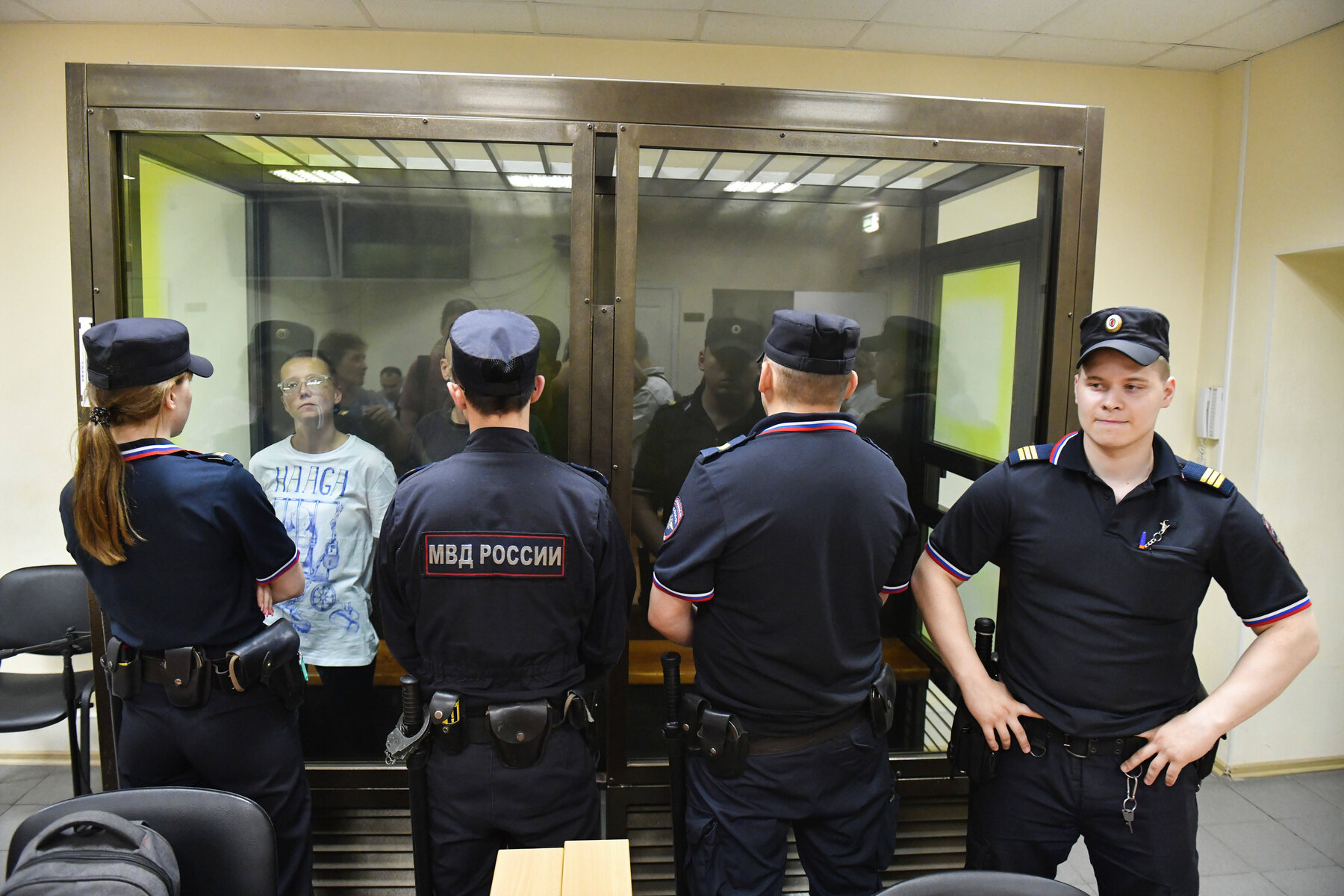Impossible Odds: the brave lawyer standing up for Russia’s political dissidents
All names in this article have been changed to safeguard the interviewees
In Russia today, defending those charged with anti-government crimes has almost no chance of success, but one brave lawyer believes it’s his duty to try.
Dmitriy walks into the café in Siberia with his face half-hidden under a baseball cap bearing the logo “Scotch Whisky”. He doesn’t just look around at the other customers. He inspects each of them slowly. He recognizes me, nods, and goes to the counter to order pizza and two cans of a Russian-brand fizzy drink that has replaced Coca-Cola since the sanctions. Aged around 40 and of average height, Dmitriy is wearing a knitted cardigan and jeans. He does not remove the cap when he sits down. After some stilted conversation while he checks his phone, Dmitriy begins to monitor the person at the next table. “How long has this guy been sitting there?” he asks me in a hushed tone. He then gives me a sign to me to remain silent and refuses to say another word until the young man finishes his food and leaves.
His suspicion and caution are easy to explain. Dmitriy remains almost the only lawyer in the vast area of Russia beyond the Urals who is willing to take on political cases. Most of his clients charged with politically sensitive crimes are journalists or social activists. His professional experience has taught him how easy it is to be arrested for merely sharing a personal opinion about the war with Ukraine or for criticizing the authorities. A highly experienced lawyer and a member of the Russian Federal Bar Association, he is unpopular with the government because he defends political activists free of charge. It’s a “matter of principle” for him, he says.
Since the start of the Russian invasion of Ukraine in February 2022, almost all high-profile anti-war cases have resulted in convictions. “The year 2022 was a record year for the introduction of—we won’t use the word “repressive”—prohibitive laws,” says Dmitriy. The disproportionate punishment for violating these laws, he adds, is even harsher. “The general rule of thumb is that a person gets seven years for making controversial statements, while someone who beats a person to death gets six years.”
At the start of the war the Kremlin rushed through a number of laws targeting basic rights such as freedom of speech and freedom of assembly, as well as a law making it an offence to spread false information about the Russian army. According to prominent Russian human rights organization OVD-Info, to date 1024 criminal cases have been brought against anti-war dissidents since the invasion. An estimated 300 people have been imprisoned.
Dmitriy admits that his work involves almost impossible odds. He can rarely prevent his clients from being convicted. “The rate of acquittal in Russia is about 0.01% so I can’t truly defend. My role is more to provide palliative care." It is not only a metaphor. Dmitriy is crucial to his clients because he stays in close contact with them throughout their trials and assists them in any way he can, especially if they are imprisoned.
In spring of 2022, one of his clients, a journalist, was arrested under the new law of “disseminating false information about the armed forces of the Russian Federation” after publishing an article about the war. He was sentenced to several years in prison. During the trial, almost all the facts in the journalist’s article were corroborated by witnesses, but this made no difference to the sentence. "The law has stopped working,” Dmitriy says. “Now everything works according to orders from above. I tell all my clients from the start that their case is probably hopeless but that I will do what I can. I also promise to carry packages to prison for them, help them to call their relatives and somehow make their life easier, if I’m lucky.”
Alexandra, also a journalist, asked for Dmitriy’s help twice. She was convicted for the first time for attending an illegal rally in support of anti-government politician Alexei Navalny in 2021. She was found guilty and given a fine. Dmitriy took the case to the European Court of Human Rights and won. The court ordered the Russian government to pay Alexandra 4,000 euros in compensation for violating her constitutional right to “unarmed assembly of citizens”. She laughs ruefully because the victory was merely symbolic. “Russia left the jurisdiction of the European Court of Human Rights in 2022 so all I can do is frame their judgement and put it on my wall,” she says.
The second time was more serious and a rare occasion when Dmitriy’s efforts really paid off. In spring 2022, at a press conference at the Ministry of Internal Affairs, Alexandra turned up in yellow and blue clothes. Photos with her wearing the colours of the Ukrainian flag standing among the surly military spread through social media. The next day the police came to her office and charged her with discrediting the Russian army. The grounds for her arrest were posts on her personal page stating, “Putin is a war criminal” and “Stop the war in Ukraine”. The police refused to allow her access to a lawyer. “It was a gross procedural error and Dmitriy seized on this mistake. After I was convicted in the city court, he appealed to the regional court and I was acquitted.”
According to the journalist, Dmitriy’s pro bono work is invaluable. “There are other lawyers who will take your case but they charge high fees that most people can’t afford,” she says. Alexandra adds that even if the lawyer can't prevent a conviction, he can stop you from hurting yourself more. “Sometimes a lawyer is like a doctor who helps simply by being there. I was suffering from extreme nervous tension in the court and felt great relief when Dmitriy turned up.”
Dmitriy tries to help in numerous other ways. He holds meetings for parents and teenagers explaining the penalties for posting on the internet and conducts seminars on information security for young lawyers. He has some active channels on social media where he gives advice. The work is stressful, especially when there is little chance of a positive outcome. When I ask how he copes with all this, he looks at me frankly from under his baseball cap and answers that he is an alcoholic. Drink is his painkiller. He also sometimes leaves the city and escapes into nature for a while.
What motivates him to keep going? Dmitriy replies: “Freedom in principle begins with freedom of speech. If a person is forbidden to express his opinion, forbidden to speak, forbidden to think, there will be no freedom in principle. Even the mute expresses themselves with gestures. If this is banned, if you close your mouths, then all other freedoms are no longer needed.”



